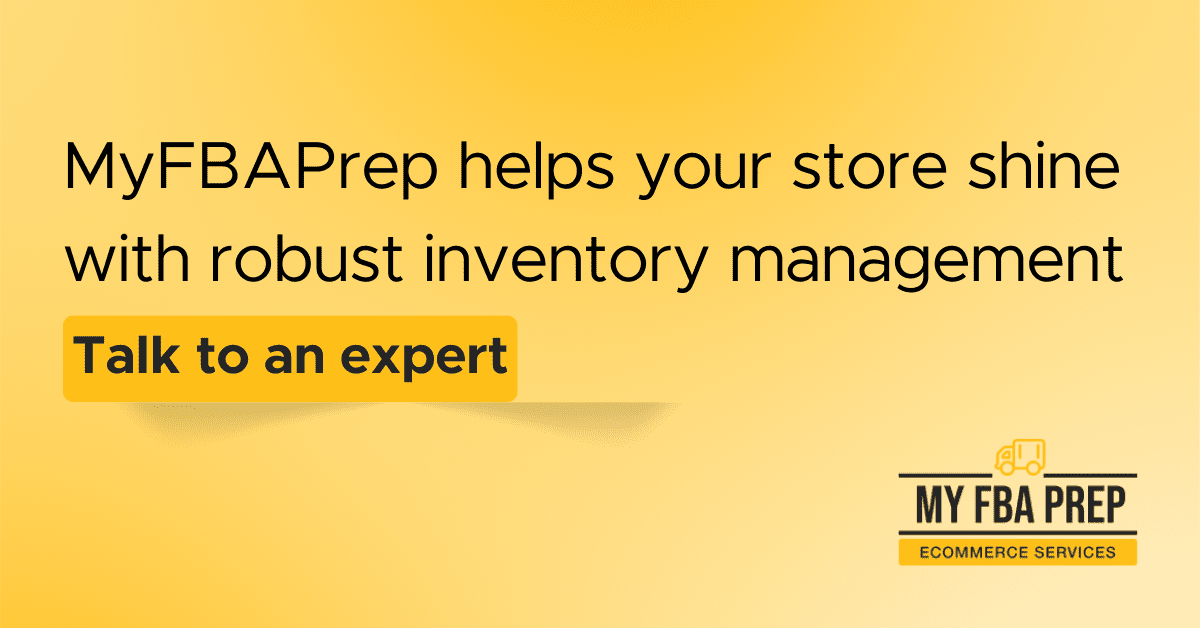
The Importance of eCommerce Inventory Insurance and How to Choose the Right Provider

Ever suffered a stock loss?
If so, you’re not alone. In 2020, 15% of U.S. retailers experienced an inventory shrink of 3% or higher, and only 10% said they saw stock losses between 1% and 1.24%. These figures may not sound like much, but losses can rack up to eye-watering amounts when operating with high sales volume or selling expensive goods.
Not only is this experience painful, but your business will have to foot the hefty bill solo without a lifeline. Worse, the unrealized sales still impact your store’s profits and overall ROI, rubbing more salt into the already gaping wound.
Luckily, for an eCommerce business, that lifeline is inventory insurance.
In this post, we’ll explore what inventory insurance is and what it’s not. We’ll also share some perks of using this type of cover and tips on selecting the best insurer for your business.
What is inventory insurance?
Inventory insurance is protection you buy to cover physical stock in your business. While buying stock cover is a necessity for all eCommerce businesses, it becomes especially useful in scenarios such as:
- Brands experiencing fast growth
- Cross-border selling
- Selling items that are known to have high defect rates, e.g., electronics
- Retailing goods with a short shelf-life, e.g., consumables.
Costs can vary depending on the service level you choose along with factors like inventory spec, the type of cover you need, and your business’ claim history.
What does inventory insurance usually cover?
You can choose what issues and circumstances to cover by carefully vetting your provider and matching them to your store’s unique requirements. As a base, most insurers offer protection against issues like:
- Theft
- Loss
- Damage
- Late dispatch/arrival
What inventory insurance doesn’t cover
Inventory insurance doesn’t cover assets or areas in your business besides stock. For example, if you want indemnity for operational ceasing, litigation, or employees, you’ll need to seek additional insurance policies.
5 Tempting benefits of inventory insurance
By now, you probably have a few different policies in your eCommerce business and are questioning whether the extra financial commitment to inventory insurance is worth it. In short, it is! Let’s run through a few reasons why purchasing cover for your stock is always a good idea:
1. Security when disaster strikes
Whether it’s flood damage to inventory during peak season or a warehousing blip that leads to large stockpiles expiring, disasters happen. Getting inventory cover will ensure you can get back on track sooner by reducing your risk exposure, so you can rest easy at night.
2. Protect yourself from known issues
It’s easy to worry about the unknown sneaking up on you and neglect the stock-related problems you often encounter, that can derail your progress. For example, if you sell fragile goods or operate in an area where inventory theft is common, you could frequently find yourself with stock-related losses.
Buying inventory insurance can help you stay steps ahead of the common problem you encounter to minimize damage.
3. Get access to essential eCommerce services
For many services and solutions, insurance is a right of passage to do business. So, if you want to work with a fulfillment house, 3PL, or multiple carriers, inventory insurance comes in handy. You’ll have peace of mind knowing if anything happens to your goods while in their care, your insurance will kick in to save the day.
4. Show investors their cash is in safe hands
Nobody likes to lose money, not even investors. Inventory insurance can help reassure your investors their cash won’t go up in flames if you experience stock loss. It’ll also give them more confidence that your business can remain agile and recover in the event of stock losses.
5. Maintain a good buyer experience
Even when things go wrong, inventory insurance will give you the cash flow to fix problems for your buyers. As a result, your buyer experience can escape unscathed, protecting your brand reputation and future sales.
What to look for from your inventory insurance provider
To get the best provider and insurance cover, it’s critical to vet providers carefully. There are many questions you can ask and traits to require to whittle down the list of viable insurance options. Here are a few characteristics to look out for:
- Fair terms, service levels, and rates: Whether you opt for the premium or basic cover, insurance that gives you your money’s worth is essential for solid ROI. Your provider should also offer fair terms and rates, with the option to upgrade or downgrade your plan.
- Flexible policy periods and extensions: eCommerce is constantly changing, and your policy should be too. Opt for a plan that allows you to adjust its setup when needed. For example, switching from yearly to monthly payments is hassle-free.
- Satisfactory claim windows: Ensure your plan offers reasonable terms on when you can begin claiming once signed up and the timeframe for making a claim when catastrophe strikes. This will help avoid stressful rushing to claim during peak seasons.
- Low to no charges to make a claim and hikes following a claim submission: Choose plans with affordable claim charges that won’t punish you financially for making claims by imposing larger premiums. Depending on the big claim, a small hike in the premium price may be feasible.
- Complete reimbursement for eligible claims: Buy insurance that will payout 100% of the cost of the goods when damaged to ensure you aren’t left out of pocket.
- Multi-site coverage: Look for insurance covering multiple locations and territories where your inventory is stored and sold.
Is your store scaling fast? Get the right fulfillment solutions for the journey.
Tips for picking the right inventory insurance plan
Now we know what to look for in an inventory insurer, it’s important to craft a strategy to choose the right service and know when to tweak it for optimal cover.
Let’s dive into the steps to take.
Record which items need insuring
First up on the inventory insurance to-do list is to create a physical asset list and decide which items need coverage. Use this list to set the budget and service level you require. Your stock list should include information such as:
- Product name and a short description
- Price and manufacturing dates
- Current number of units in stock (per SKU)
- The average number of units in stock per month (per SKU)
- Item cost
- Product recommended retail price (RRP)
- Serial numbers
Tip: Take note of important details such as inventory location(s), the time it takes to produce each product, and the Units you sell per month to give insurers. This information will help them advise on the most suitable plan for your business.
Shop around
No matter how good the deal may look, never take the first offer. Explore different options and seek advice from multiple companies on the type of cover you should procure.
Obtain quotes, compare prices, and use them to get even deal quotes. It may seem like a lot of work upfront, but since your inventory will be an ongoing expense, it’s worth the extra time and effort to secure the best rates and services.
Only work with reliable and experienced providers
Make sure your inventory insurance plan is legitimate, and the issuing company is trustworthy and experienced to avoid issues later down the line. A few things to look for in your inventory insurance provider include:
- A solid track record for dealing with cases justly
- Overall positive reviews and testimonials
- Good payout rate
- Quick response rate
- Excellent communication
Conduct annual reviews
As your business matures, its inventory may change along with its required cover. So keep your stock list updated for easy monitoring and track your claims frequency, reasons, and success rate. Also, make a note to re-evaluate your inventory insurance needs to guarantee it continues to meet your business needs. Some areas to consider when reassessing your inventory insurance are:
- Portfolio size
- Product complexity
- Territories traded in
- Number of claims that year
Have a cash buffer
Sadly, not all claims will be eligible for a payout like “acts of God” unless your policy outright says it’s covered. So, have sufficient emergency cash reserves to protect your business. This amount can vary depending on your product costs. However, aim to have enough cash to meet your minimum required stock units for your top products, manufacturing minimum order quantities, and funds for expedited shipping.
Need a hand managing inventory? Learn how MyFBAPrep can help.
Wrapping up — Strengthen your defenses with inventory insurance
Stock loss poses a real threat to eCommerce sellers’ and retailers’ long-term success. Inventory insurance creates invisible, ironclad walls around your eCommerce business to ensure it thrives come rain or shine.
Understand your business needs, research the best inventory insurance providers in your territory, and evaluate multiple quotes to find the best fit. Keep an eye on your business’s changing needs and adjust your insurance plan accordingly to ensure you don’t get left out of pocket when something goes wrong with your inventory.
Take these steps, and soon, you’ll have inventory insurance that protects investments and helps your store grow through the highs and lows of eCommerce.




